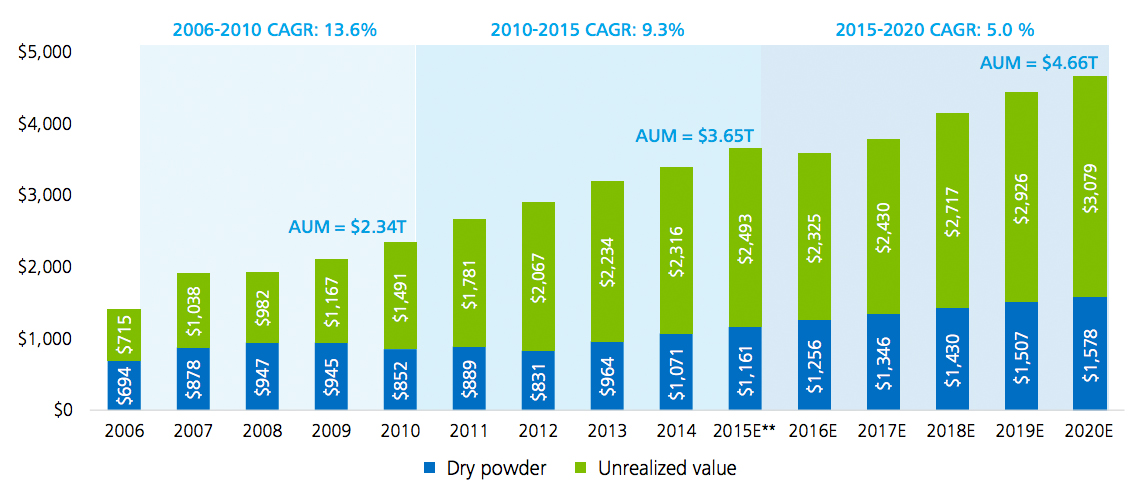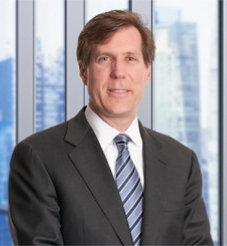Private equity assets will exceed $4 trillion in the next two years, according to a Deloitte analysis.
The industry will further grow to $4.66 trillion by 2020, the consultant estimated. As of 2015, assets under management, including dry powder and the unrealized value of portfolio companies, totaled $3.65 trillion. Dry powder—already at record highs—will increase from $1.16 trillion at the end of 2015 to $1.58 trillion by 2020, the report said.
“Private equity has outpaced other asset classes over the past decade, with assets rising at a robust 13.7 compound annual growth rate (CAGR) since year-end 2005,” Deloitte reported.
Although growth is unlikely to continue at its current pace—and in fact has slowed over the last few years—limited partners continue to devote increasingly large portions of their portfolios to the asset class. A recent Preqin survey found 88% of investors planned to maintain or increase their allocations over the next year.
“The rising interest in private equity by limited partners is driven by a number of factors, including diversification, the search for non-correlated assets, and fund outperformance versus standard benchmarks,” Deloitte said. “Private equity performance has generally not disappointed over time.”
This positive performance has also contributed to rising assets, the report said, as limited partners reinvest returned capital. However, Deloitte said with assets at an all-time high, private equity firms will have to “compete aggressively” for attractive deals.
Public pension funds were the asset class’ largest source of capital, contributing 30% of total assets under management—despite private equity only making up 6% of the average fund’s portfolio.
Family offices, meanwhile, only committed 5% of total private equity capital—but dedicated 27% of their portfolios to the asset class, the consultant found.
“Even though the industry has experienced steady growth over the past several years, it is critical to keep an eye on how the global environment may be shifting,” Deloitte said. “Private equity growth has been slowing over the past few years, a trend that may persist.”
 Source: Deloitte’s “Private Equity Growth in Transition“
Source: Deloitte’s “Private Equity Growth in Transition“
Related: Valuations Fail to Deter Private Equity Investors & Crowded

 Mitch Petrick, outgoing managing director, Carlyle
Mitch Petrick, outgoing managing director, Carlyle